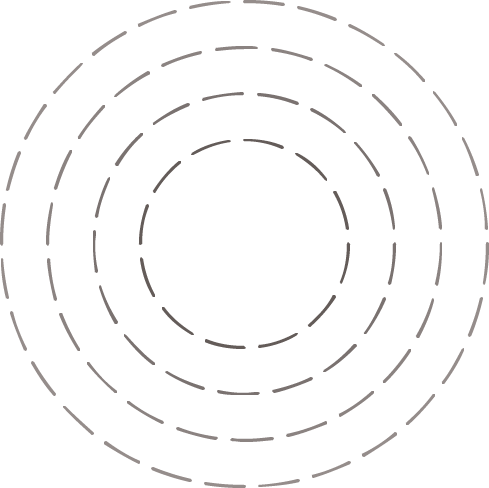What is Focusing?
Are you familiar with mindfulness?
It’s an excellent place to start for most people interested in Focusing. Mindfulness is the practice of being fully present in the moment with non-judgement. Focusing is the same kind of attending turned inward to thoughts, feelings, memories and physical sensations. In a six-step process, Focusing teaches people to pay attention to the body in a way that may be unfamiliar to find where and how information we’re not quite consciously aware of exists. Focusing works in this murky embodied place rather than up in the busy thinking brain. If you’ve ever felt angry in your chest, embarrassed in your face, or nervous in your belly, you’re halfway there.
Focusing is a way of tapping into your emotional intelligence through the messages your body holds. It helps access to your inner compass, truth, information, wisdom, knowing, or intuition. Learning and practicing some simple steps can help you gain awareness of your physical body and learn to direct your attention towards parts of your experience that you might not readily find language to express.
Focusing can help you:
Find personal meaning and a path to personal development
Deepen therapy work and meditation practices
Have a greater tolerance for big feelings
Change fixed or rigid patterns or beliefs
Learn to trust yourself
Understand your emotions
Understand your past
Be more present in the moment
Be a better listener to yourself and others
Live with chronic pain
Cope with serious illness
Reduce stress
Problem-solve
Where does Focusing come from?
Focusing began in the 1950s at The University of Chicago where is Eugene Gendlin, a then philosophy student, became interested in the work of Carl Rogers, the granddaddy of person-centered humanistic psychology. Gendlin noticed that Roger’s therapy clients who had the most success in therapy were the kind of people who were motivated and open to grow and learn as people. These clients had the ability to connect with their inner bodily processes rather than participating in therapy as a cerebral activity. Gendlin operationalized this process into six steps and called it Focusing.
What is Coaching?
Coaching is a partnership that can help a person make changes, set new goals and create personal growth. It is a thought-provoking creative process that supports clients as they build a new awareness of their strengths. Coaching empowers clients to harness their strengths to achieve the results they want in their personal, professional, and academic lives.
What Kind of Coaching Do We Offer?
WB has a broad range of services that can be grouped into five categories:
Coaching for ADHD, Neurodiversity, & Learning Differences
Focusing Coaching
Recovery Coaching
Wellness Coaching
Academic Coaching
WHAT’S THE DIFFERNCE BETWEEN COACHING & FOCUSING?
Coaching and therapy both work towards wellness with a specific approach, addressing parts of a client's life that need change, but there are some differences.
What Should I Expect?
It doesn’t take long to figure out if you have chemistry with another person. We hope that our consult meetings are where we can both get a feel for each other and ask some critical questions about values, goals, attitudes and approaches to change, growth, and coaching. This kind of appointment aims for both of us to assess a good fit and establish what our next steps might be.
18 Questions for potential Coaches and Therapists
Interviewing A Potential Coach? There Are No Silly Questions!
Finding the right person to work with is a bit like finding the right dance partner. We want all of our clients to start a new working relationship feeling like they have a clear understanding of our approach and fit with them. You are welcome to ask all sorts of questions and be an active participant in interviewing potential coaches or therapists. Here are some areas of inquiry to consider and take with you wherever your next coaching experience is.
You could ask:
What’s your philosophy and approach to coaching, learning, and change?
What education and credentials do you have?
Can you tell me about your work experience?
What will the coaching process be like? What can I expect?
How often will we meet and for how long? What will we do when we’re meeting?
How can I tell I’m making progress? Is there a way we can define and measure it?
How do you address difficulties and crises when they come up?
What’s your approach to failure?
How do you work with clients if they struggle with meeting expectations?
Why do you think you might be the right kind of coach for me?
How will you find my strengths and gaps?
Have you been where I am or encountered similar issues?
Do you have any specific experience with the issues I’m working on?
Do you have your Coaching or growth relationship with a professional?
What makes your services different or more preferable than another Coach?
What’s the most crucial part of the Coaching Partnership and relationship?
What can I expect to take with me at the end of the process?












